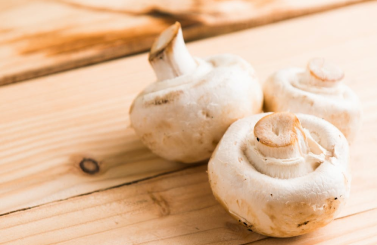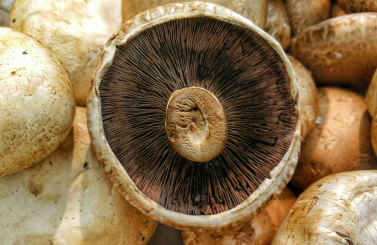While mushrooms are widely known for their great taste, many people are unaware of all the amazing health benefits that they provide. Packed with essential vitamins and minerals, they make for an excellent addition to your diet- as well as adding flavour to many different recipes.
Not only are mushrooms fat-free, low in sodium, low in calories, and cholesterol-free, but they are also jam packed with fiber, vitamins, and minerals. Nutritional benefits obviously vary depending on the type of mushroom, but overall, scientists agree that they are a good source of the following nutrients:
Antioxidants
Antioxidants help protect the body from damaging free radicals that can cause conditions like heart disease and cancer. They also protect you against damage from aging and boost your immune system. Mushrooms are rich in the antioxidant called selenium. In fact, they are the best source of the mineral in the grocery aisle.
Beta glucan
Beta glucan is a form of soluble dietary fiber that’s been strongly linked to improving cholesterol and boosting heart health. It can also help your body regulate blood sugar, reducing the risk of type 2 diabetes. Oyster and shiitake mushrooms are believed to have the most effective beta glucans.
B vitamins
Mushrooms are rich in the B vitamins: riboflavin, niacin, and pantothenic acid. The combination helps protect heart health. Riboflavin is good for red blood cells. Niacin is good for the digestive system and for maintaining healthy skin. Pantothenic acid is good for the nervous system and helps the body make the hormones it needs.
Copper
Copper helps your body make red blood cells, which are used to deliver oxygen all over the body. The mineral is also important to other processes in the body, like maintaining healthy bones and nerves. Even after being cooked, a 1-cup serving of mushrooms can provide about one-third of the daily recommended amount of copper.
Potassium
Potassium is extremely important when it comes to heart, muscle, and nerve function. There’s about as much potassium in 2/3 cup of cooked Portobello mushroom as there is in a medium-sized banana.
From brain health, to vitamin boosts; gut health to brain function, overall you cannot go wrong with Mushrooms!!!



Ranging from small button to large flat cap, white mushrooms are one of the most common and mildest-tasting mushroom around. While the white mushroom is less intensely flavored than many of its more exotic kin, it is still one of the most versatile and popular. It can be eaten either raw or cooked, with some popular methods being baking, sautéing, roasting, grilling or stewing
Similar to the white mushroom, Chestnut mushrooms come in a varying sizes- from the small button mushrooms to larger open cap mushrooms. Chestnut mushrooms tend to grow in clusters, and have a bolder flavour, often referred to as mildly sweet, nutty and rich in taste. Their colour can vary from a light tan to a rich brown. Perfect for sautéing and simmering, roasting and poaching, grilling or stir frying.
Shiitake mushrooms are an East Asian mushroom which have gained increasing popularity in recent years due their rich savory taste, and diverse medicinal qualities. In the wild, they grow on the decaying bark of hardwood trees, however majority are now cultivated. Shiitake are best identified by their umbrella-shaped brown caps, which curl under ever so slightly. Fresh shiitakes have a light woodsy flavor and aroma, while their dried counterparts are more intense. Both fresh and dried, are used in soups, stews, stir fries and many other dishes.
The Portobello is a fully matured chestnut mushroom. With large rich brown caps and velvety brown gills, portobellos are a firm favourite. Portobello mushrooms taste intensely meaty and savory, with loads of umami and are popular for roasting, grilling or baking.